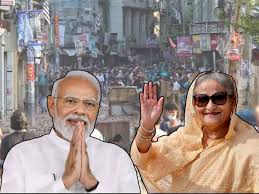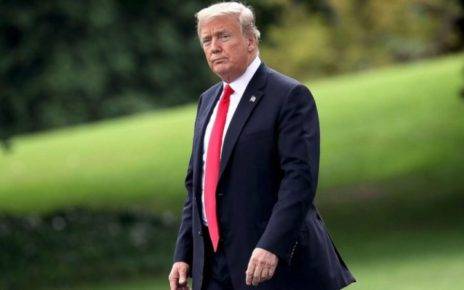The sudden resignation and departure of Bangladesh Prime Minister Sheikh Hasina to India has triggered significant concern in New Delhi. Arriving at Hindon airbase in Ghaziabad, Hasina met with National Security Advisor Ajit Doval before being taken to a safe house, with plans to possibly travel to the United Kingdom. This abrupt exit comes amidst escalating turmoil on Dhaka’s streets, where public anger against Hasina’s government has reached a boiling point. India’s worry is palpable, fearing that the backlash against Hasina could also impact its relationship with Bangladesh, where it has been a steadfast ally of the Awami League.
On Monday night, Prime Minister Narendra Modi convened a high-level meeting with the Cabinet Committee on Security to assess the situation. Key ministers and senior intelligence officials were in attendance, underscoring the gravity of the situation. The immediate response included plans to secure Indian diplomatic facilities in Bangladesh and preparations for potential evacuations of Indian nationals. The Indian Air Force has been mobilized to assist in these efforts, reflecting the urgent need to protect Indian interests and citizens in the region.
The scenes of chaos in Dhaka, where protesters have attacked government buildings and symbols of authority, have unsettled New Delhi. Hasina’s tenure since 2008 has been marked by close cooperation with India, especially in counter-terrorism efforts. This alliance has been crucial for India in maintaining regional stability and combating extremism. However, Hasina’s heavy-handed approach to political dissent and her increasing autocracy have drawn criticism, particularly from Western nations. Despite these concerns, India has consistently supported her regime, valuing the stability she provided. Now, with her ousting, India faces the challenge of navigating a potential power shift in Bangladesh that could empower anti-India elements.
Hasina’s response to the recent protests has only exacerbated the crisis. Her attempts to frame the demonstrations as opposition-fueled and her subsequent crackdown have backfired, turning a leaderless youth movement into a broader political upheaval. The violence and repression have left a trail of casualties, further fueling public outrage. As India refrains from direct intervention, focusing instead on the safety of its citizens, it must prepare for the implications of a new political landscape in Bangladesh. The challenge will be to maintain influence and ensure stability as the country grapples with the aftermath of Hasina’s departure.
New Delhi’s strategic approach will likely involve leveraging its established ties with Bangladesh’s security forces and civil society. These relationships, built on years of cooperation against terrorism and extremism, could prove vital in managing the transition. However, the road ahead is fraught with uncertainty. The rise of opposition parties like the BNP and Jamaat could redefine Bangladesh’s power dynamics, posing new challenges for India’s foreign policy. As the situation unfolds, India’s diplomatic and strategic acumen will be tested in maintaining its influence and safeguarding its interests in a potentially volatile region.





